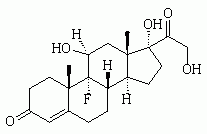Fludrocortisone therapy did not result in adequate improvement of neurally mediated hypotension in a study of 83 patients who had chronic fatigue syndrome, reported Dr. Peter C. Rowe of Johns Hopkins University, Baltimore, and associates.
Preliminary studies had shown that chronic fatigue syndrome (CFS) improved when patients' hypotension was treated, so the investigators conducted a larger trial to assess whether fludrocortisone treatment would improve both orthostatic intolerance and CFS symptoms.
The drug did not adequately improve orthostatic intolerance, however, and only 14% of those who were randomly assigned to receive the drug reported a clinically meaningful improvement in CFS symptoms, Dr. Rowe and his associates said. This response rate was not significantly different from the 10% response rate that was seen in the patients who received placebo, they reported (JAMA 285[1]:52-59, 2001).
The results do not preclude the possibility that a different agent or a combination therapy might prove effective in patients with CFS, they noted.
COPYRIGHT 2001 International Medical News Group
COPYRIGHT 2001 Gale Group



